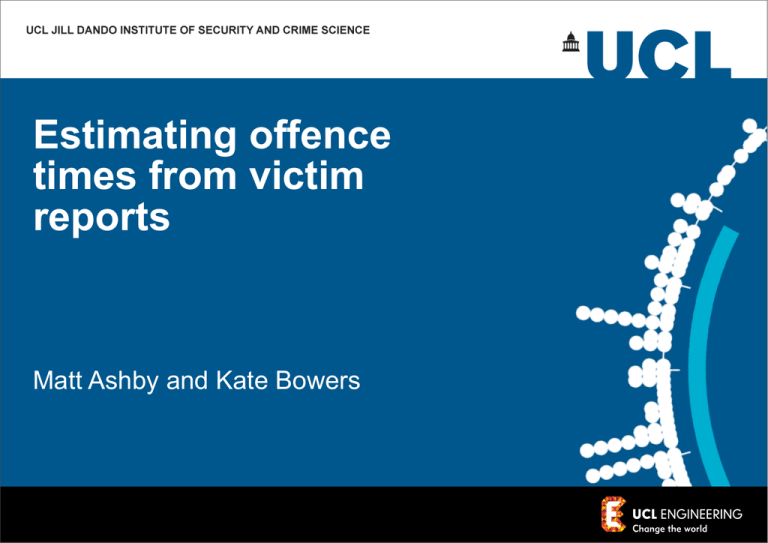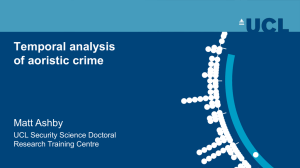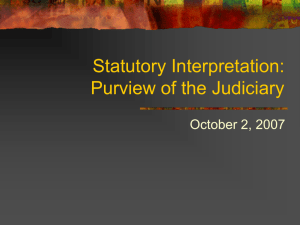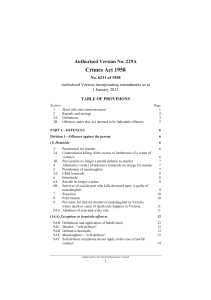Estimating offence times from victim reports Matt Ashby and Kate Bowers
advertisement

Estimating offence times from victim reports Matt Ashby and Kate Bowers The problem of aoristic crime If you get home to find your house has been burgled, will you be able to tell the police when it happened? The problem of aoristic crime Earliest possible offence time 0900 hours Latest possible offence time 1200 1800 range >1 hour for 63% of commercial burglaries, median 6 hours range >1 hour for 88% of thefts of motor vehicles, median 11.5 hours Data Records of 1,396 pedal cycle thefts from railway stations, including: •offence start and end time times •description of investigation •whether or not CCTV helped the investigation Actual offence time from CCTV Earliest possible offence time 0900 hours Latest possible offence time 1200 1800 Is 303 crimes a big-enough sample? Median crimes per month in a London borough Crime type Crimes Dwelling burglaries Thefts … of cycles of vehicles from vehicles Damage … to dwellings to vehicles 150 39 x 12 = 468 cycle thefts 70 191 51 88 per year Method Start Wr 4.73** ** p < 0.05 ** p < 0.01 Method Wr Start 4.73** End 3.10** ** p < 0.05 ** p < 0.01 Method Wr Start 4.73** End 3.10** Mid point 1.53** ** p < 0.05 ** p < 0.01 Method Wr Start 4.73** End 3.10** Mid point 1.53** Random 0.28** ** p < 0.05 ** p < 0.01 Method Wr Start 4.73** End 3.10** Mid point 1.53** Random 0.28** Aoristic 0.23** ** p < 0.05 ** p < 0.01 Good aoristic or random methods Not too bad mid-point and known-time methods Very bad indeed start and end methods Thanks British Transport Police for data British Transport Police, Ryan Gallagher and Daniel Hoherd for photos






